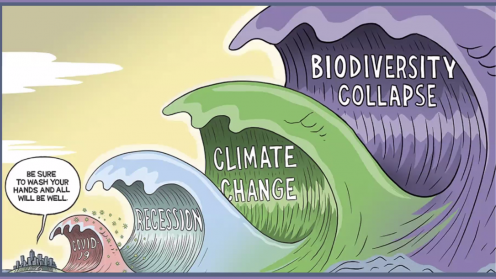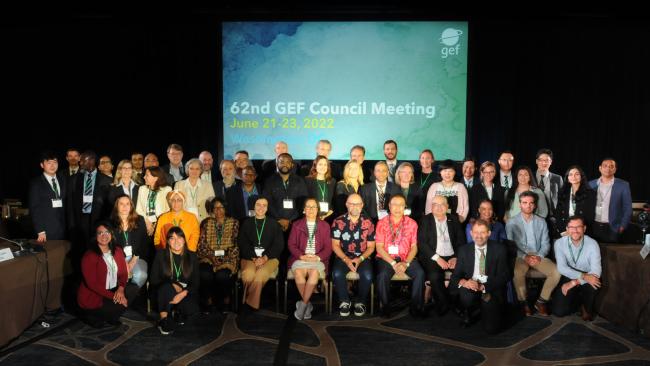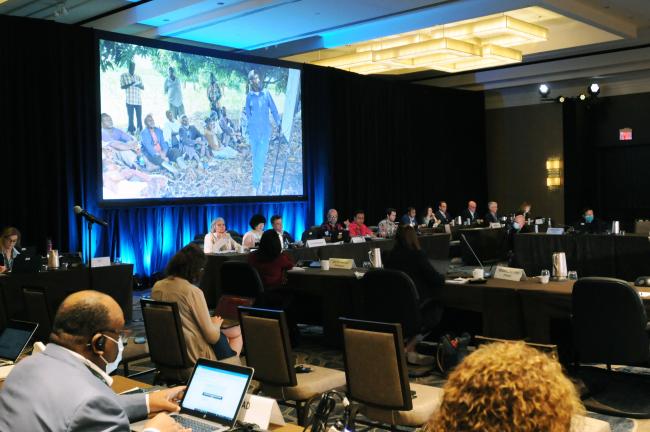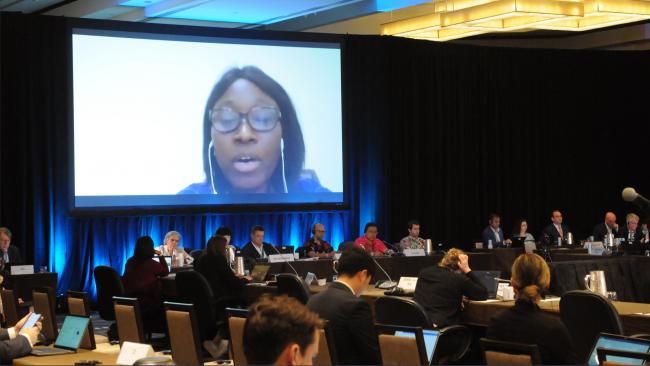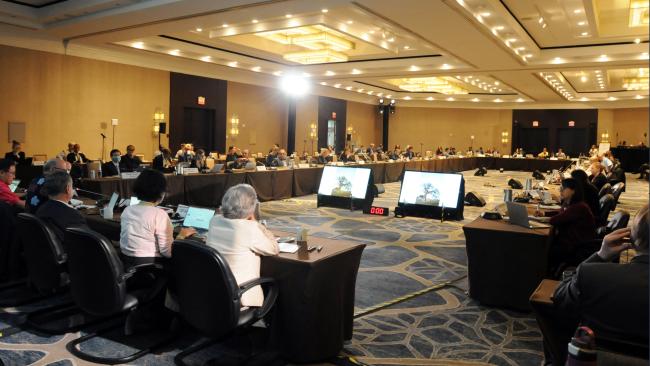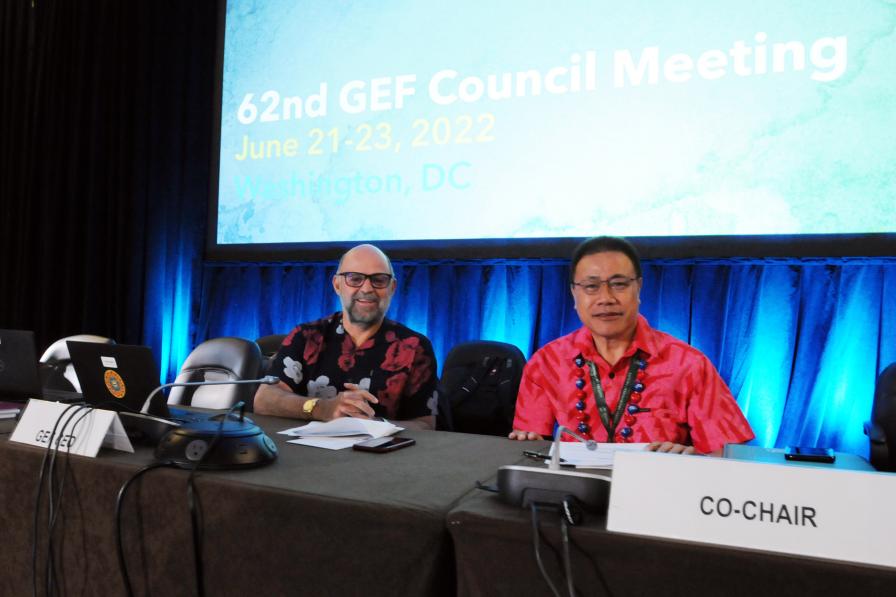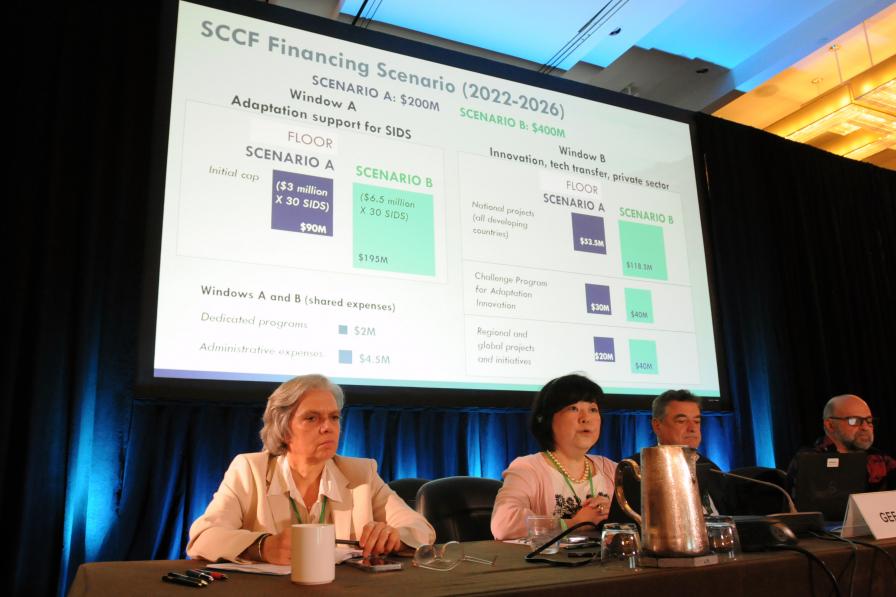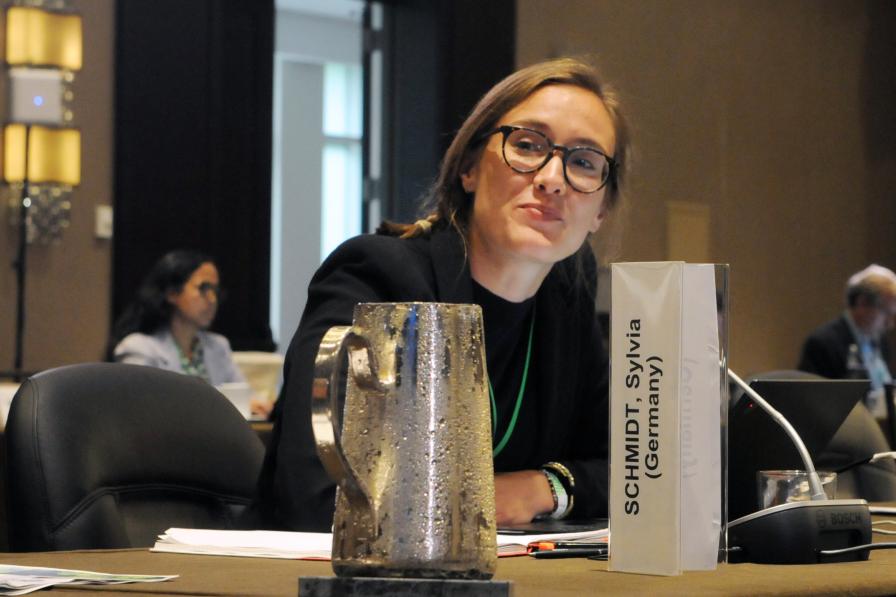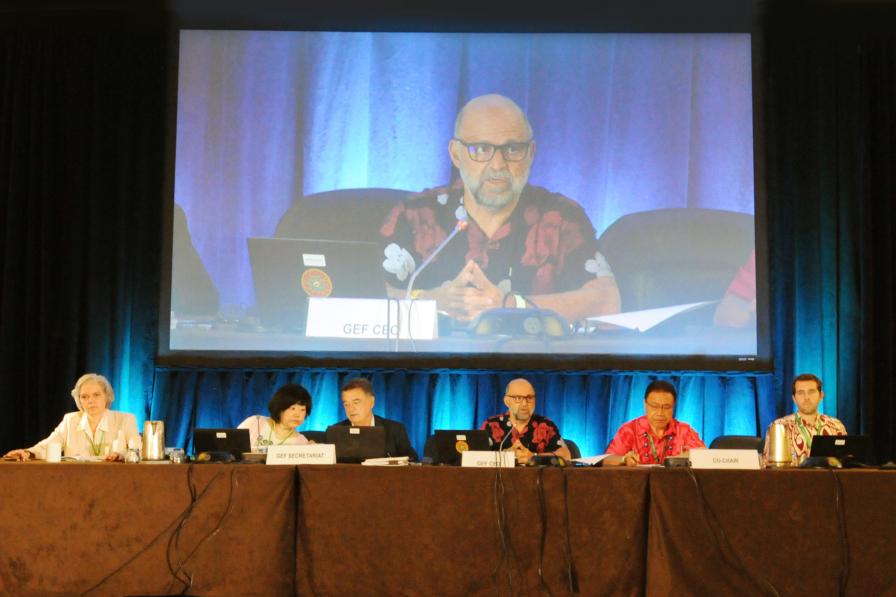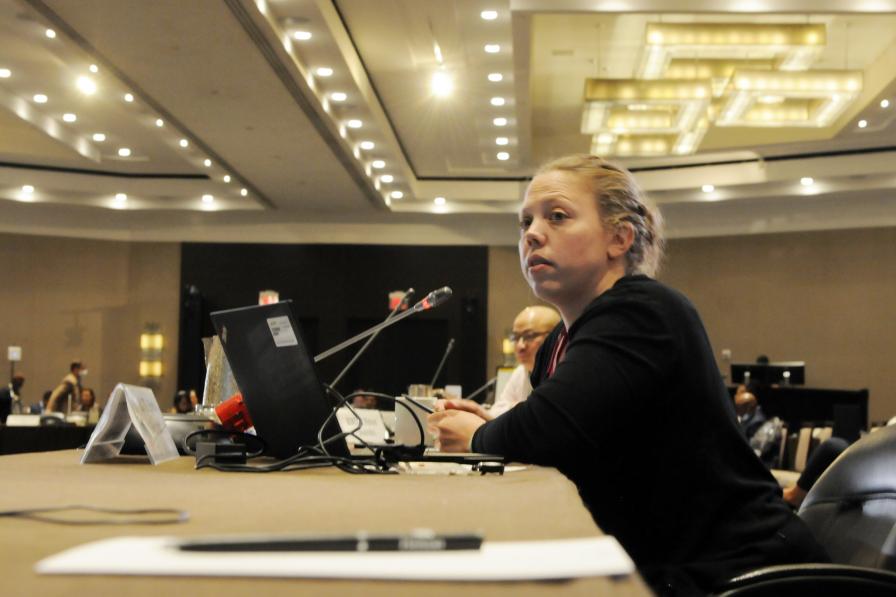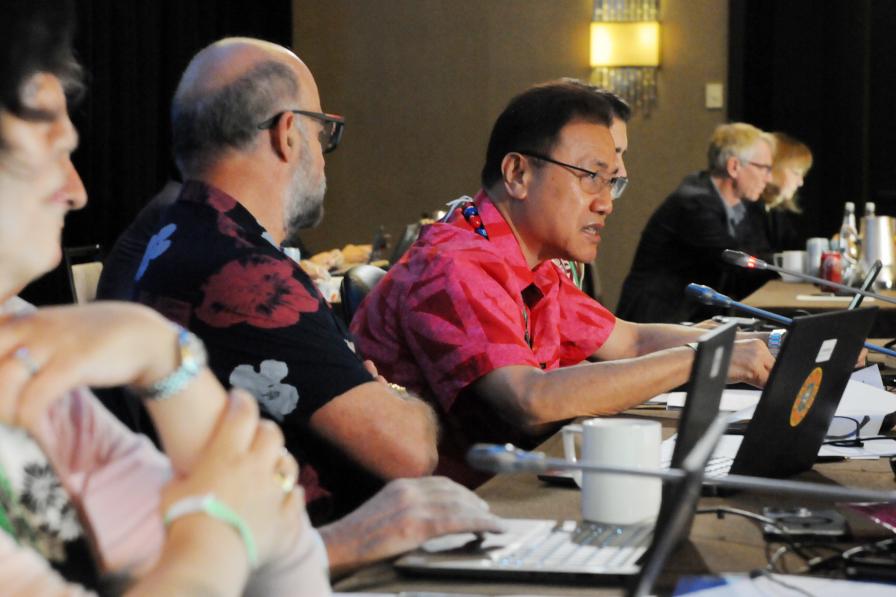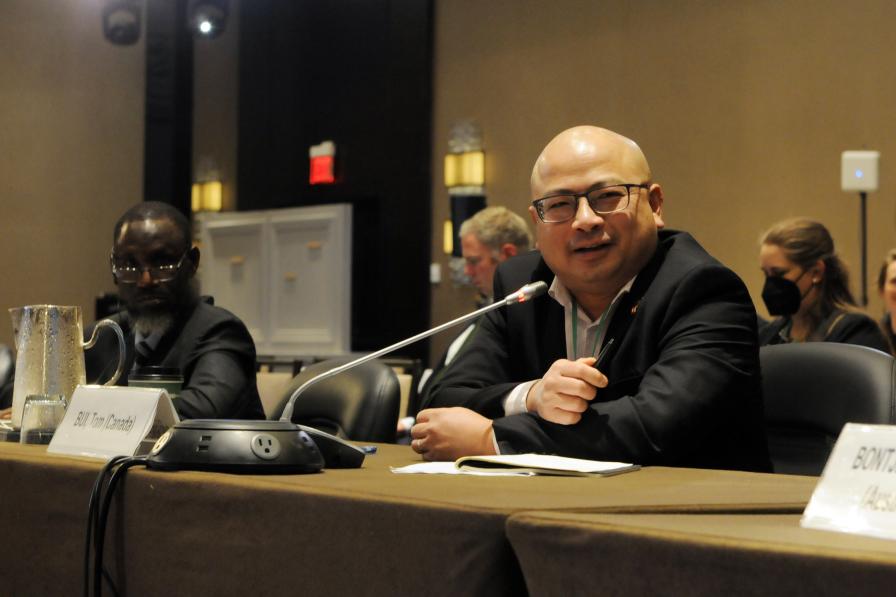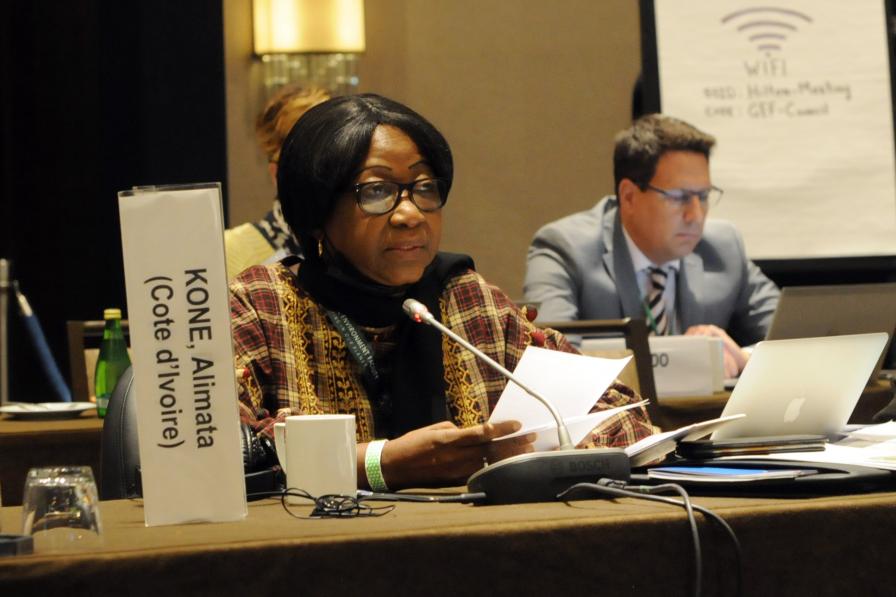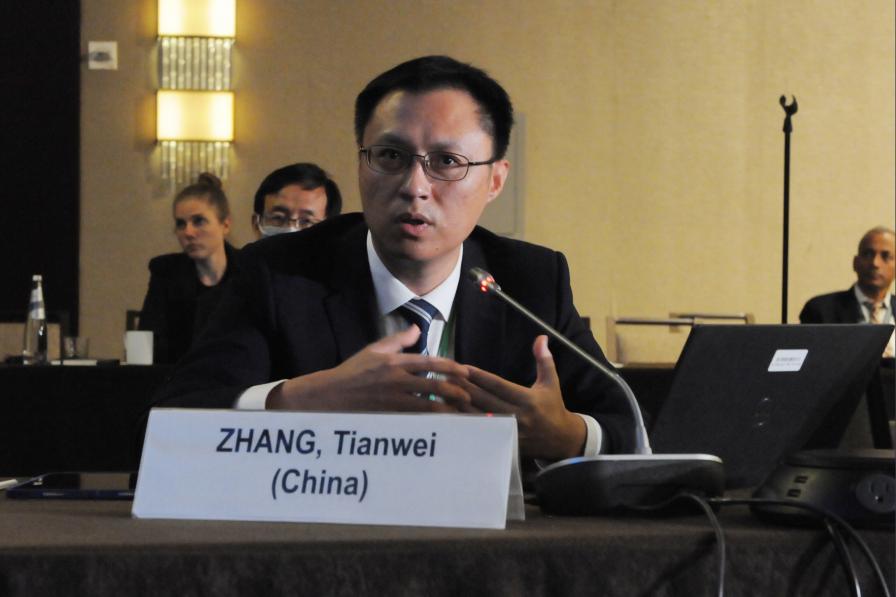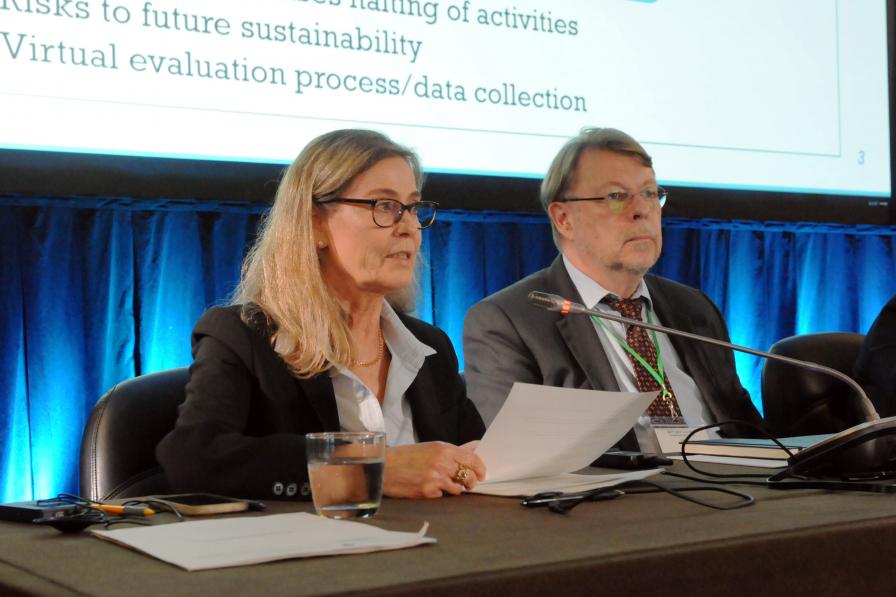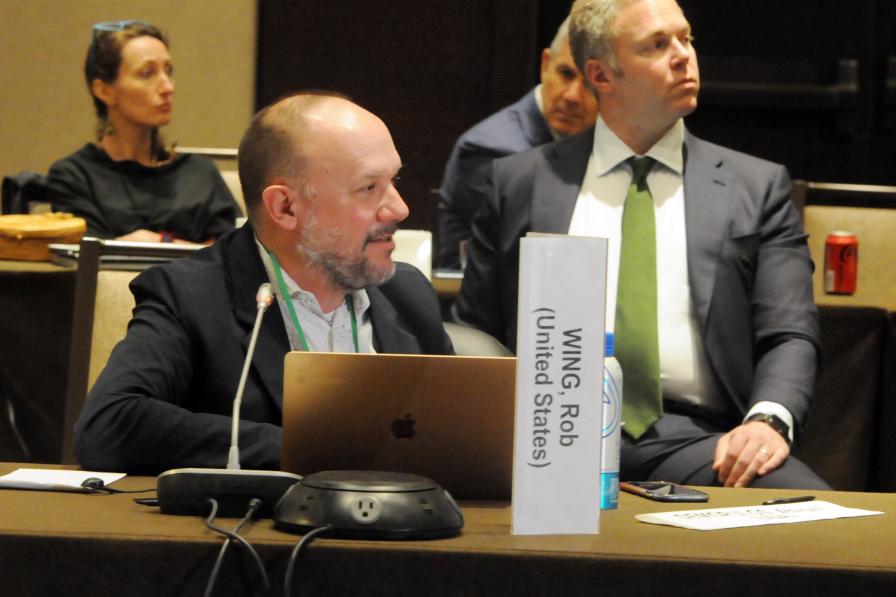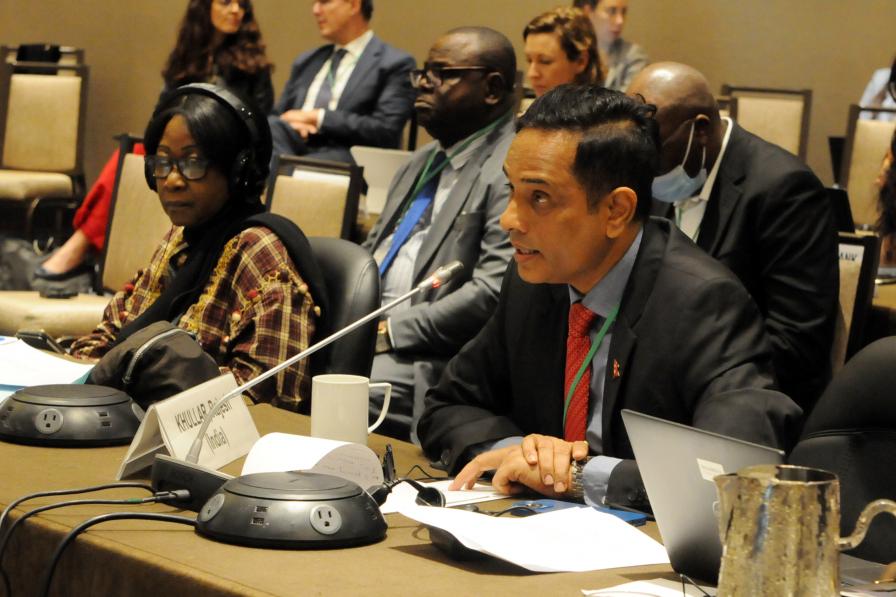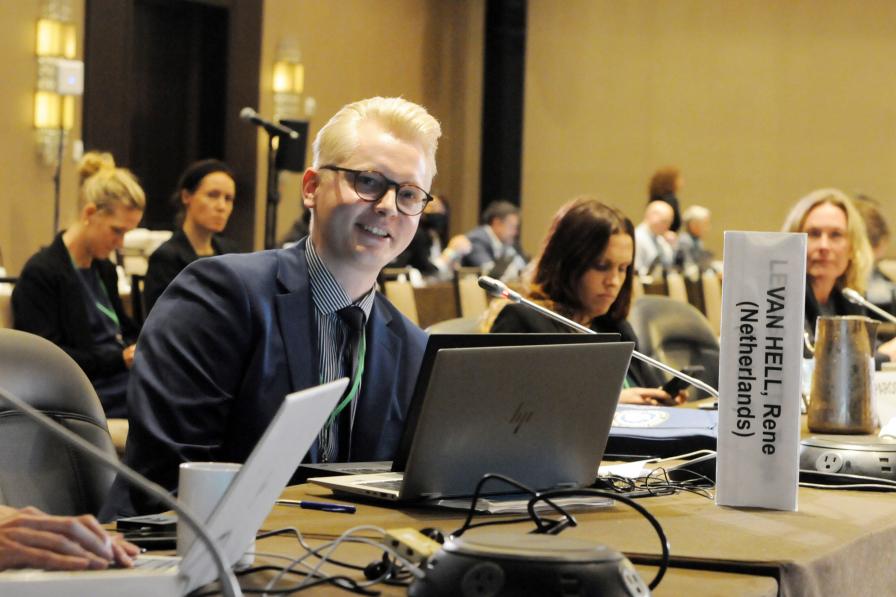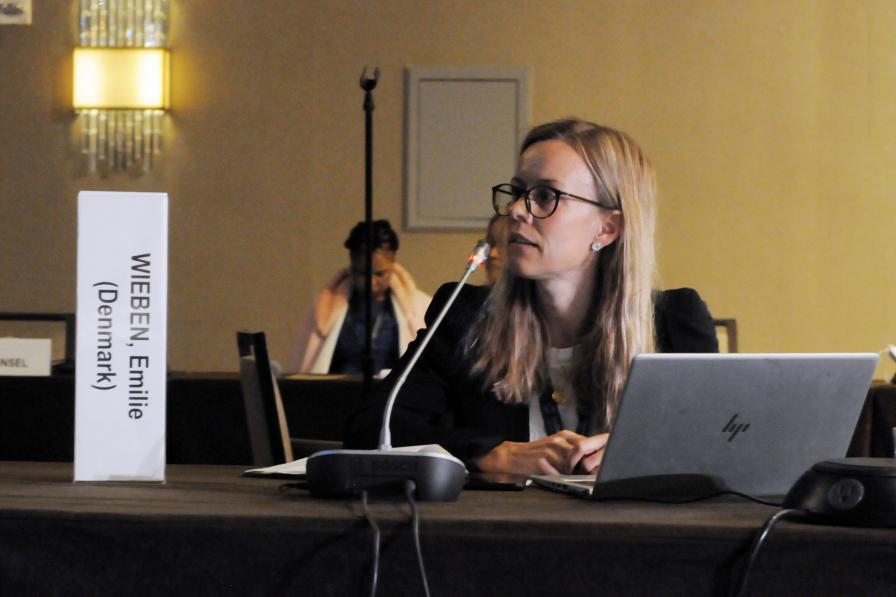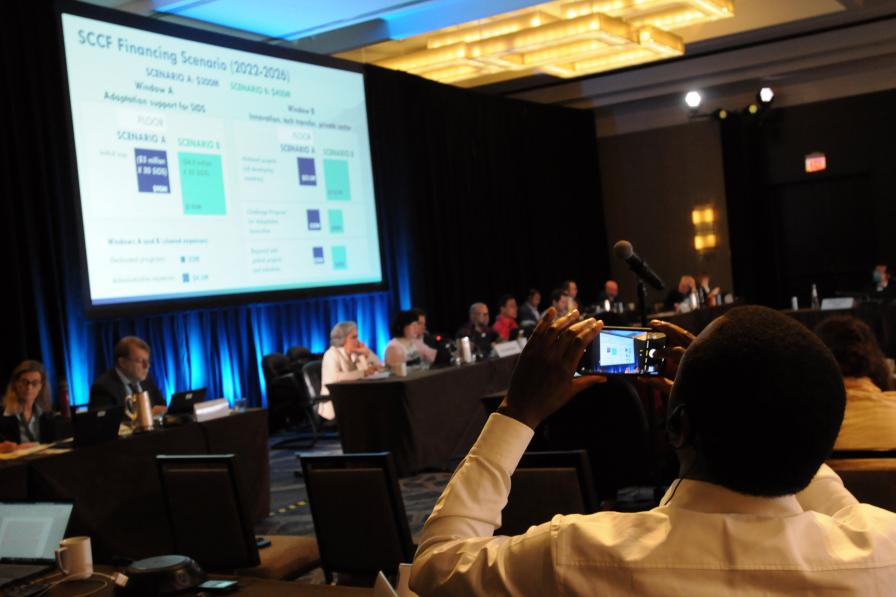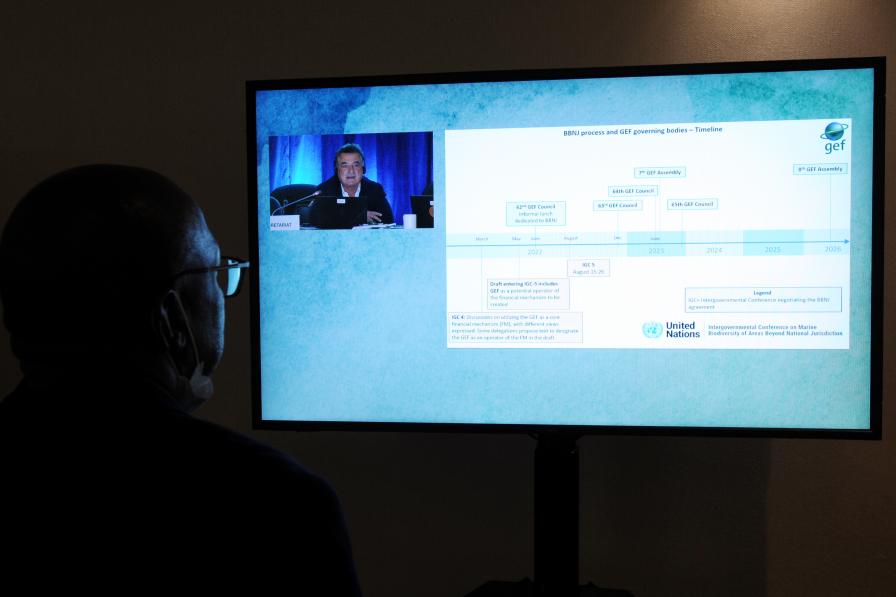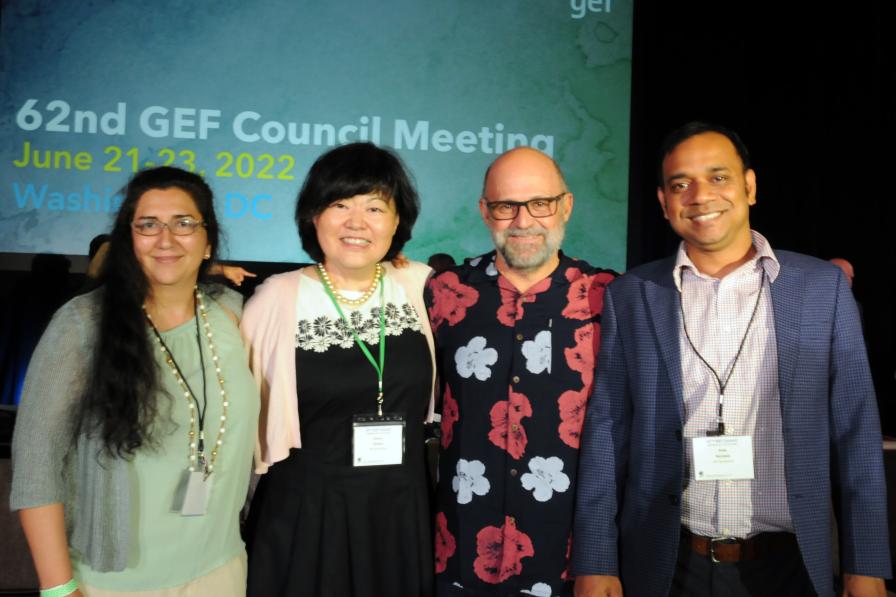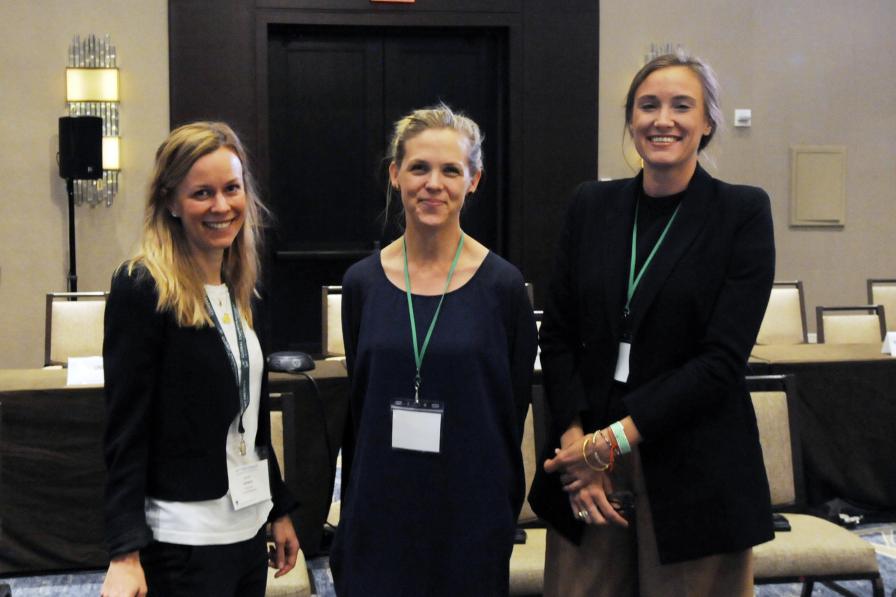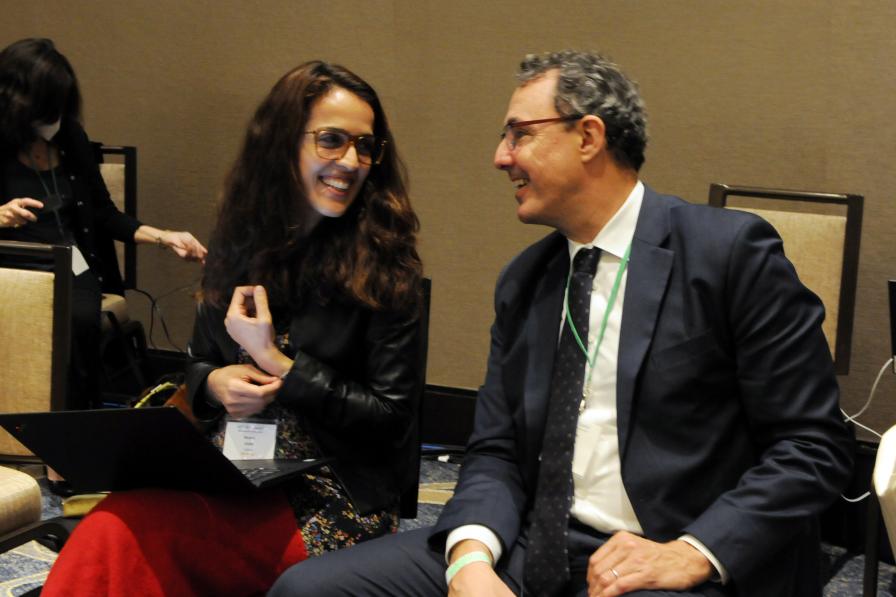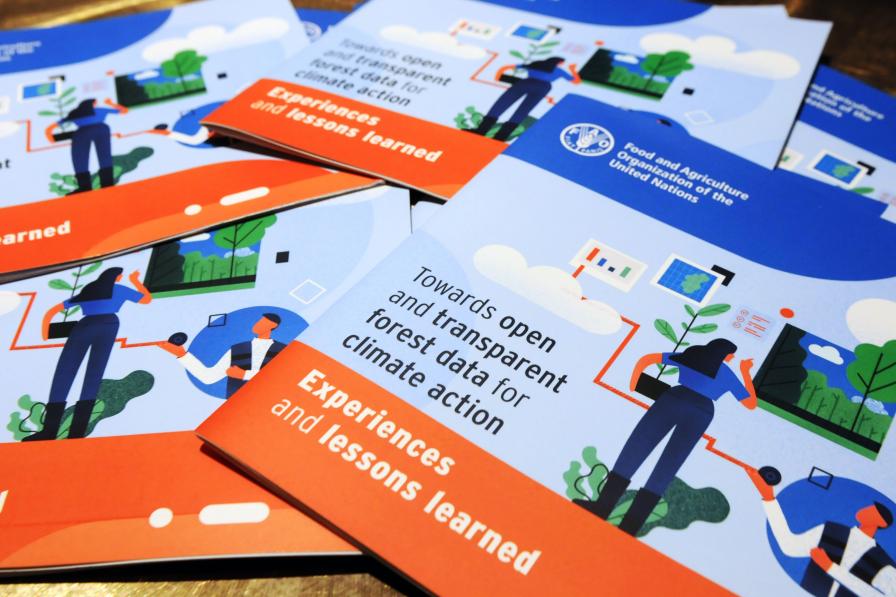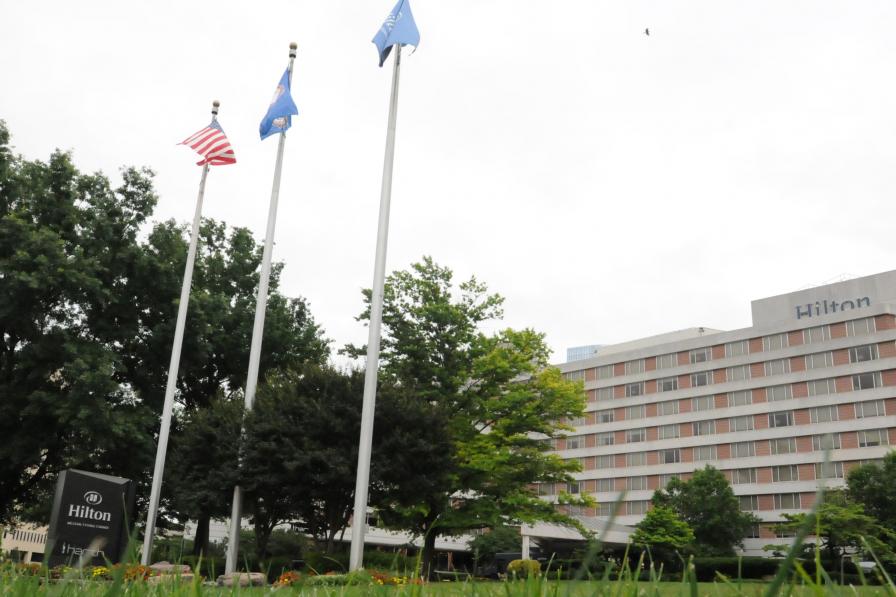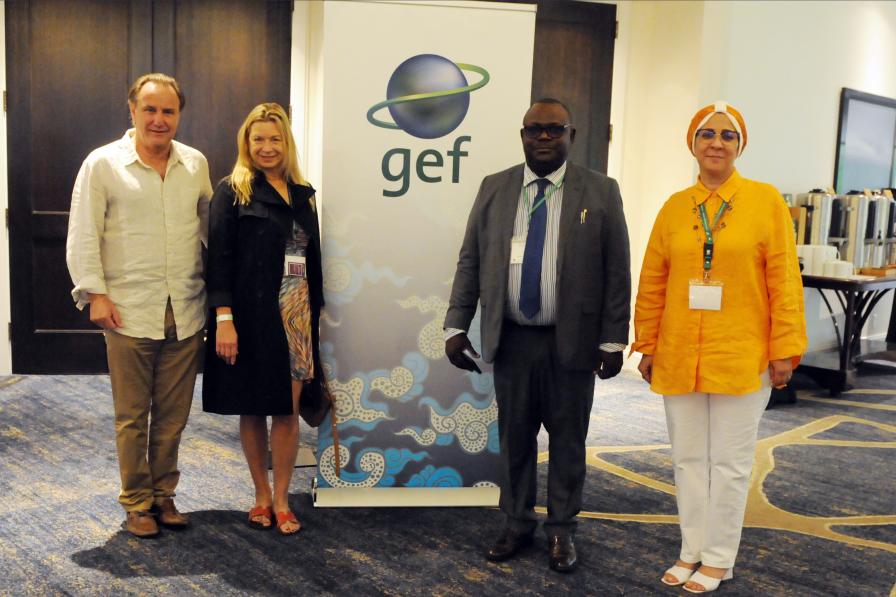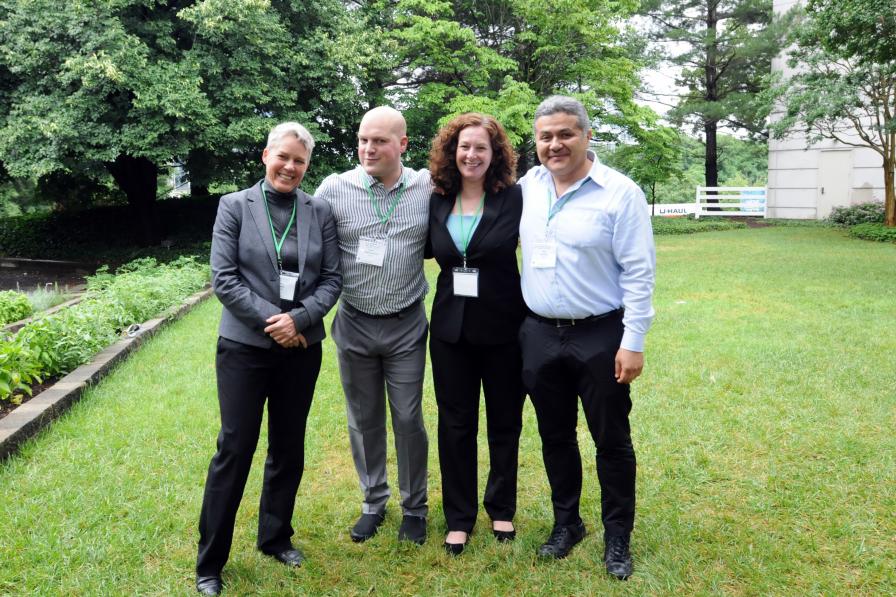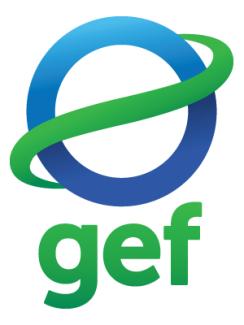Carlos Manuel Rodríguez, GEF CEO and Chairperson, opened the final meeting of the LDCF/SCCF Council of the seventh replenishment period of the GEF (GEF-7), emphasizing the importance of the two funds’ focus on adaptation, given that our ability to keep global warming at or below 1.5°C is “by no means certain.” Council members adopted the final Work Program for LDCF projects in the GEF-7 cycle, which amounted to USD 72.44 million for eight projects.
Rodríguez highlighted the input that had been received around the new strategy for the LDCF and SCCF, and stressed the need to scale up and provide predictable funds. He underscored that the Work Program represented an almost 100% expenditure of the available LDCF funds.
Madeleine Diouf Sarr, Chair of the Least Developed Countries (LDC) Group, expressed appreciation for the growing number of adaptation projects, the inclusive and transparent process in developing GEF-8, and the proactive training provided for LDCs to understand the new strategies, saying this strengthened their collective vision on adaptation and transformation.
In his presentation of specific projects in the Work Program, Gustavo Fonseca, Director of Programs at the GEF Secretariat, highlighted that with this Work Program, 100% of LDCs were supported during GEF-7. He said all eight projects in this Work Program would respond to the ambition and requirements of the GEF policy on gender equality, and noted that four of the projects address urgent and immediate climate change adaptation priorities in at least four LDCs, including:
- work by Comoros to strengthen the resilience of climate-smart agricultural systems and value chains;
- work by Niger to strengthen the resilience of small farmers through climate-smart agriculture techniques in Tahoua region;
- ecosystem-based adaptation for improved livelihood in Tuvalu; and
- upscaling ecosystem-based adaption for Madagascar’s coastal zones.
Fonseca added that all projects are expected to deliver adaptation benefits, with: 1,308,995 beneficiaries, 51.1% of whom are female; at least 101 policies and plans; 233,498 hectares of land under climate-resilient management; and 41,043 people (51.9% of whom are female) with enhanced capacity.
Two countries pledged funding to the LDCF. Finland announced it will provide EUR 2 million for LDCF in 2022. Denmark announced it will provide DKK 150 million in 2022 and the same amount in 2023.
The GEF Council concluded a discussion that had begun on Wednesday by adopting text calling for the GEF Secretariat, in consultation with the STAP and interested Council Members and Alternates, to prepare a paper on a GEF-8 programming risk framework for consideration by the Council at its 64th session.
Council Members were also briefed on negotiations on an international legally binding instrument under the UN Convention on the Law of the Sea (UNCLOS) on the conservation and sustainable use of marine biological diversity of areas beyond national jurisdiction (BBNJ), and the process that would be required if the GEF were to be proposed to serve as its financial mechanism.
At the end of the day, the GEF Council and LDCF/SCCF Councils reviewed the co-chairs’ summary of the meetings, which comprised the decisions that were taken during each meeting, and adopted the summaries without changes.
GEF CEO Rodríguez thanked the Council Members and GEF staff for making the in-person meeting successful. He highlighted that the meeting capped off a successful GEF-7 cycle, and looked forward to the new GEF-8 cycle and the opportunities that it will bring. The 62nd meeting of the GEF Council closed at 4:00 pm.
To receive free coverage of global environmental events delivered to your inbox, subscribe to the ENB Update newsletter.
All ENB photos are free to use with attribution. For photos from GEF Council 62, please use: Photo by IISD/ENB | Diego Noguera.
